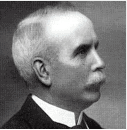I knew there would be trouble the moment she walked in the room. Like many IT people, I have an instinctive aversion to HR people. She looked briskly at me and waddled importantly to the desk.
I’d come for an interview with a firm in Cambridge running an IT consultancy from an office quite near where Red Gate now is based. They said in the advert that they wanted a Database expert with Oracle, Sybase and SQL Server experience. I’d mistakenly thought I’d talk about consultancy, and IT issues, eye-to-eye with a like-minded technologist. Instead I faced this creature.
After some anodyne pleasantries, she came to the point
“Right. First, I’d like you to complete this test. You will have three-quarters of an hour”.
She banged the form in front of me. I glanced at it.
‘This is an NFER test for schools, designed to assess the academic skills of fourteen year olds.” I said.
She tut-tutted. “This is a standard test that we give to all candidates for jobs here. We are familiar with the results and so it is invaluable in our candidate-selection process.”
“Impossible. This is a test standardised on a school population, and designed to be administered in a certain way by a trained teacher. It is to try to predict academic progress up to 16, and it was never much good at that. It will tell you absolutely nothing about how effective someone will be in the workplace”
She gave me her best ‘we’ve got a right smartarse here’ look. There was a strained silence.
“Another problem is that I know all the answers, since I had to administer and mark the wretched thing in the past, when I was a teacher. You have additional problems in the ethics of giving someone a psychometric test without prior notice or proper consent. It is actually not permitted in the NHS”.
There was a pause as she tried to come to grips with this. “I don’t agree,” she finally said, “All our candidates are happy to take the test and we find the results very useful.”
When I worked so hard to get my Masters, I thought to myself that it would be a generally recognised badge of educational achievement. How times change. I wondered if I could show her how silly this was. “OK”, I said. ‘I’ll take the test”. She looked intensely relieved, set her stopwatch and left the room.
I looked down at the once-familiar test. I never thought I’d see it ever again. Within fifteen minutes, I’d filled it all in, with perfect answers since I’d done so many markings of the wretched test. I was gazing out of the window, and meditating on the comedy of human frailty when she minced in after three-quarters of an hour to pick up the completed test.
I then was taken to another room where a manager started to interview me. I became increasingly disappointed. He gave the impression that the entire business was run by the rule book and the consultants were mere cannon fodder in a consultant army. This was no place of contentment for a free-thinking technologist. The HR lady brought the test results into the room, glancing at me with a new-found respect. The manager did a double-take, and a subsequent u-turn from his arrogant demeanour, to become repulsively ingratiating. I had, of course, a perfect score. One doesn’t forget the correct answers after all that marking.
And soon it came…
“… and why, in particular, would you like to join our company ?” Wide smile.
This is it. “Because of my experiences this morning, I’m afraid that I don’t”.
I rose to leave, shook him by the hand and was soon, flooded with relief, in the fresh air once more.
“Did you have a good interview?” asked my wife brightly as I returned home.





Load comments